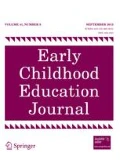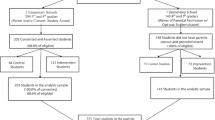A diverse sample of kindergarten and 1st grade students participated in a social-emotional literacy and problem solving program. Students and their teachers participated in seven one-hour training sessions which included concrete activities designed to increase affective vocabulary and social problem-solving. Effective communication strategies such as I-messages and paraphrasing were also introduced and practiced. Pretest data and responses to the activities revealed that students could easily articulate inappropriate and disrespectful behaviors prior to training; however they were unable to articulate behaviors that would be helpful in resolving conflict. Although students had been extensively exposed to manners curricula which emphasized respectful behavior, the posttest results indicate that the social-emotional problem solving curricula offers a distinct set of skills which enable students to constructively manage conflict, manifested through statistically significant decreases in verbal and physical aggression. Teacher and staff posttest surveys corroborated the student findings.
Similar content being viewed by others
References
Bodine , R. (1996). From peer mediation to peaceable schools. Update on Law-Related Education, 20(2), 7–9
Crawford, D., Bodine, R. (1996). Conflict resolution education: A guide to implementing programs in schools, youth-serving organizations, and community and juvenile justice settings. Washington, DC: Department of Justice Publication
Hawkins, J. D. (1995). Controlling crime before it happens: Risk focused prevention. National Institute of Justice Journal, 95, 10–18.
Heydenberk, R., & Heydenberk, W. (1997). Conflict positive classrooms in at-risk schools. Paper presented at the World Peace Organization’s 50th Anniversary of the United Nations, UN Plaza, NY.
Heydenberk, W., & Heydenberk, R. (2000). A Powerful Peace: The Integrative Thinking Classroom. Boston: Allyn & Bacon.
Heydenberk, R. & Heydenberk, W. (2004). Sticks and stones will break my bones—but words will bruise my brain. ACResolution, 4, 1.
Heydenberk, R., & Heydenberk, W. (2005). Increasing metacognitive competence through conflict resolution. Education and Urban Society, 37(4) 431–452.
Hoover, J., & Olover, R. (1996). The Bullying Prevention Handbook: A Guide for Principals, Teachers, and Counselors. Bloomington, IN: National Education Service.
Johnson D., Johnson, R. (1996). Conflict resolution and peer mediation programs in elementary and secondary schools: A review of the research. Review of Educational Research, 66(4), 459–506
Kennedy-Moore E., Watson J. (1999). Expressing emotion: Myths, realities and therapeutic strategies. New York: Guilford Press
Masten A., Coatsworth J. (1998). The development of competence in favorable and unfavorable environments. American Psychologist, 53(2), 205–217
Pennebaker, J. (1997) Opening Up: The Healing Power of Emotions. New York: Guilford Press.
Pennebaker J. W. (2004) Emotion, disclosure and health. Washington DC: American Psychological Association
Salovey P., Mayer J. D., Goldman S. L., Turvey C., Palfai T. P. (2004), Emotional attention, clarity and repair: Exploring emotional intelligence using the trait meta-mood scale. In J. W. Pennebaker (Ed.) Emotion, disclosure and health (pp. 125–154). Washington DC: American Psychological Association
Schunk D. H. (1991). Self-efficacy and academic motivation. Educational Psychologist, 2(3–4), 207–231
Schwartz G. E., Kline J. P. (2004) Repression, emotional disclosure and health: Theoretical, empirical and clinical considerations. In J. W. Pennebaker (Ed.) Emotion, disclosure and health (pp. 177–194). Washington DC: American Psychological Association
Simon, T., Barrios, L., Lowry, R., Eaton, D., & Brener, N. (2004). Violence-related behaviors among high school students-United States, 1991–2003. Morbidity and Mortality Weekly Report, 53(29), 651–655.
Smith, D. C., & Sandhu, D. S. (2004). Toward a positive perspective on violence prevention in schools: Building connections. Journal of Counseling and Development, 82, 287–293
U.S. Dept. of Justice (1997). Conflict resolution (March, 1997, No. 55). Washington, D.C.: U.S. Government Printing Office
Wentzel, K. R. (1991). Relations between social competency and academic achievement in early adolescence. Child Development, 62 1066–1078.
Author information
Authors and Affiliations
Corresponding author
Rights and permissions
About this article
Cite this article
Heydenberk, W., Heydenberk, R. More than Manners: Conflict Resolution in Primary Level Classrooms. Early Childhood Educ J 35, 119–126 (2007). https://doi.org/10.1007/s10643-007-0185-4
Received:
Accepted:
Published:
Issue Date:
DOI: https://doi.org/10.1007/s10643-007-0185-4




